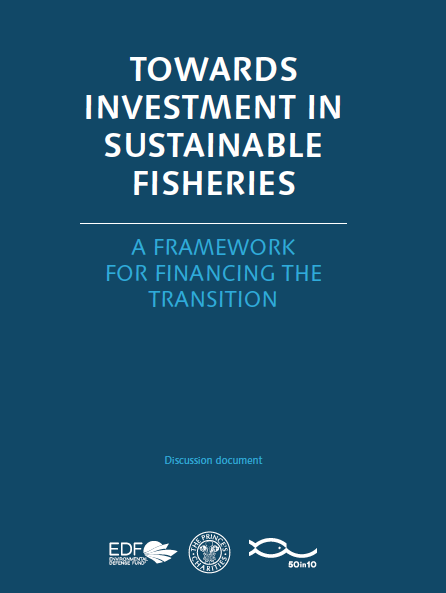The transition to more sustainable fisheries management systems can yield financial returns and deliver ecological, economic and social benefits if fisheries are structured as “investable propositions,” according to a report by the Prince of Wales' International Sustainability Unit (ISU), the US Environmental Defense Fund (EDF) and 50in10.
The organizations launched the report, ‘Towards Investment in Sustainable Fisheries: A Framework for Financing the Transition' at a conference on ‘Financing the transition towards a sustainable blue economy.'
 10 July 2014: The transition to more sustainable fisheries management systems can yield financial returns and deliver ecological, economic and social benefits if fisheries are structured as “investable propositions,” according to a report by the Prince of Wales’ International Sustainability Unit (ISU), the US Environmental Defense Fund (EDF) and 50in10. The organizations launched the report, titled ‘Towards Investment in Sustainable Fisheries: A Framework for Financing the Transition’ at a conference on ‘Financing the transition towards a sustainable blue economy.’
10 July 2014: The transition to more sustainable fisheries management systems can yield financial returns and deliver ecological, economic and social benefits if fisheries are structured as “investable propositions,” according to a report by the Prince of Wales’ International Sustainability Unit (ISU), the US Environmental Defense Fund (EDF) and 50in10. The organizations launched the report, titled ‘Towards Investment in Sustainable Fisheries: A Framework for Financing the Transition’ at a conference on ‘Financing the transition towards a sustainable blue economy.’
“Economy and ecology do not have to be locked into an irreconcilable struggle,” the Prince of Wales said in a keynote address at the conference. The Prince underscored the importance of healthy ecological systems for sustainable economic durability, saying the transition to sustainable fisheries should be seen as a “no regrets” investment.
The conference explored ways to finance a transition to a sustainable blue economy and also considered issues of financial scale in discussions on private finance and fisheries. For instance, participants underscored the challenges of bridging scale gaps between small to medium scale fishers who think in terms of tens of thousands of dollars and private finance, which focuses on hundreds of millions of dollars.
Investment beyond public and philanthropic sources is required to support a transition to more sustainable, profitable fisheries, according to the report. It highlights the role of different types of capital in financing the transition to self-sustaining fisheries systems.
The report includes case studies that describe three key enablers for sustainable, profitable fisheries: secure tenure for fishers; sustainable harvest; and robust monitoring and enforcement. The report suggests channeling investment towards three drivers of increased fisheries value: improving stock health; increasing operational efficiency, improving profit margins and improving returns from fishing; and increasing market value through branding, certification, improved market access and long-term partnerships. The report outlines requirements for attracting appropriate investment and emphasizes the importance of aligning and coordinating sources of capital.
The conference took place in London, the United Kingdom, on 10 July 2014. 50in10 is a network of organizations working to ensure that 50% of the world’s fish are caught under sustainable management regimes within 10 years. [50in10 Press Release] [Publication: Towards Investment in Sustainable Fisheries] [Prince of Wales ISU Website] [IISD RS Sources]